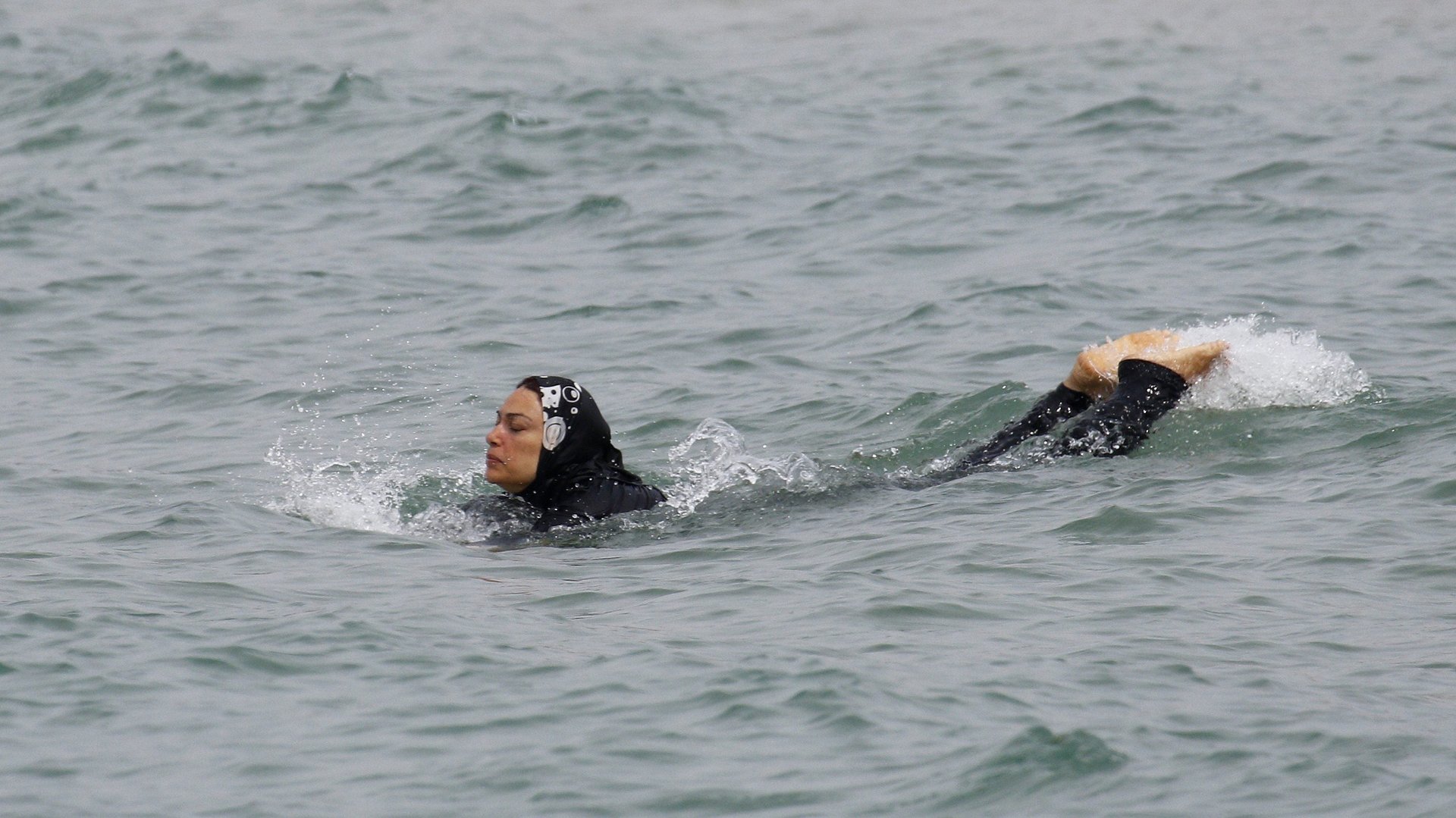“It is the beach version of the burqa”: More French towns have banned the burkini on beaches
It all began with a community event near Marseille.


It all began with a community event near Marseille.
A group booked out a water park exclusively for Muslim women wearing a burkini—a swimming garment that covers the whole body. But the event had to be cancelled after the organizers reportedly received death threats.
The cancelled burkini day has ignited another national debate on women’s rights, Islamophobia, and secularism in France. The mayor of the French Riviera resort of Cannes—not far from the site of the recent truck attack in Nice that killed more than 50—went as far as to ban women from wearing burkinis on the beach, calling it a “symbol of Islamic extremism.”
Ten women, including grandmothers, have been prosecuted under the new law. Four were fined €38 ($43) each, while all were given warnings.
Mayors in other French towns have followed suit. Villeneuve-Loubet and Sisco on the island of Corsica has also banned the burkini on public beaches, following a brawl on a beach in Sisco between Muslim families and a young group of residents, which left four people injured.
France isn’t the only country with burkini troubles. Swimming pools in Germany and Austria have also banned the swimming garment following complaints. A school in Norway has taken the opposite approach, however, and is permitting the burkini in swimming classes in hopes of increasing participation.
In France, the mostly conservative mayors insist the burkini violates French laws on secularism. The government’s minister for women’s rights, Laurence Rossignol, told French daily Le Parisien: “The burkini is not some new line of swimwear; it is the beach version of the burqa and it has the same logic: hide women’s bodies in order to better control them.”
The burkini ban is just one of many enforced by the government in a bid to defend secularism. In 2004, the government passed a law that prevented students in state-run schools from wearing any form of religious symbols, including veils. In 2011, France went a step further, banning people from concealing their face.
France’s latest ban has only increased tensions with its Muslim population, which is one of the largest in Europe.